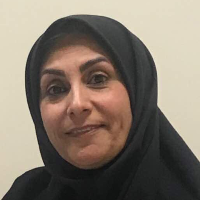The effect of observational learning by individual and dyad training on mirror neurons function and learning of movement skills in autism spectrum disorder children
Disruptions in the children Autism spectrum’s mirror neurons has been challenged by researchers in psychological and motor behavior science for children with autism spectrum. Methods that based on the mirror neuron system, such as cooperatively observation learning, can be used to increase the imitation of autism in children, and use them in teaching. However, few studies have investigated the effect of this educational method on the learning of autistic children.
The purpose of this study was to investigate the effect of observational learning by individual and dyad training on mirror neurons function and learning of movement skills in autism spectrum disorder children.
The current research is a semi-experimental one that was designed and implemented in 2017. The statistical population includes 7-14-year-old boys on the autism spectrum (Asperger's and high-functioning) in Tehran, who were selected through purposive sampling. The samples were allocated to two individual and dyad training groups and trained in breaststroke skills twice a week for a period of 8 weeks. The data collection tool includes the Gars Autism Severity Scale (1994); the Chest crawl skill assessment checklist (Galaho and Ozman, 2005), and an electroencephalograph (EEG) sensor used to record brain waves. Data analysis was done by repeated measure covariance analysis, which was done in SPSS software.
The results of covariance analysis showed that both groups improved mirror neurons function, but significantly, the dyad training group improved mirror neurons function in post-test, the difference between two groups was significantly in benefit of the dyad training group (p <0.001). Also, the quality of swimming skill (chest) in the dyad training group was significantly improved, and the difference between the two groups in improving the swimming skill was significantly in favor of the dyad group (p <0.001).
Training through observational learning, imitation, and observational feedback improves the activity of mirror neurons, which is effective in improving motor actions. As a result, one of the suggestions in this study is to focus on enhancing the functional capabilities of the neurons through observational learning in order to improve the motor skill of autism and neuropsychiatric rehabilitation.
-
The impact of success criteria in high-error practice conditions on motor learning, self-efficacy, and mood states: A challenge to the optimal theory
Samaneh Khalilirad *, Hasan Mohammadzadeh, Tafti
Journal of Sport Sciences and Health Research, Summer and Autumn 2024 -
The Effect of Mastery-Oriented Motivational Climate Intervention on Static and Dynamic Balance of Overweight Girl Children
Marjan Hokmollahi, Tafti*, Hamidreza Fallah Yakhdani
Tolooe Behdasht,



